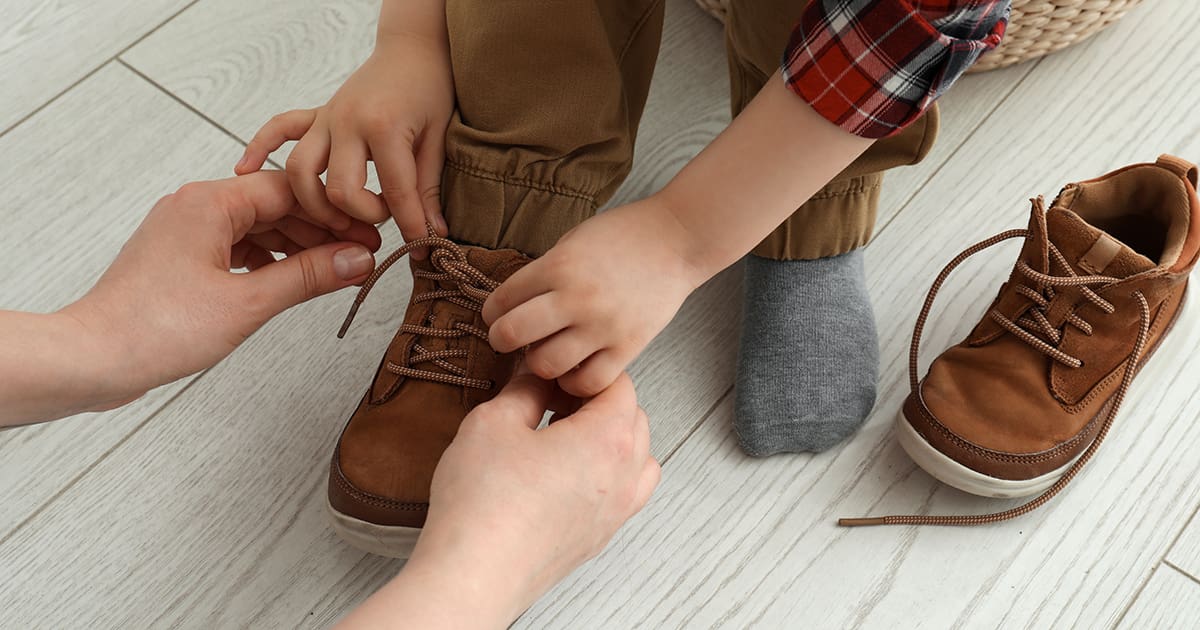Share this Post

Self-care skills are essential building blocks for independence, confidence, and daily life. Tasks like brushing teeth, dressing, and feeding oneself may seem routine, but for children with autism, these activities often come with unique challenges. With the right support, patience, and guidance, children with autism can learn and master self-care skills, gaining independence and pride in their achievements.
At CST Academy, we recognize the importance of fostering self-care skills in children with autism. Through individualized therapy, sensory-friendly strategies, and a compassionate approach, we help children and their families navigate these milestones with success. Our goal is to empower every child to thrive in their daily routines, both at home and in the community.
Why Are Self-Care Skills Important?
Self-care skills, also known as adaptive skills, encompass everyday tasks that promote independence and personal well-being. These skills include:
- Dressing and undressing.
- Brushing teeth and hair.
- Washing hands and bathing.
- Feeding oneself with utensils.
- Using the restroom.
For children with autism, mastering self-care skills can significantly impact their quality of life, helping them feel more confident and included in their daily routines. These skills also reduce dependence on caregivers, creating opportunities for greater autonomy.
Challenges Children with Autism Face in Self-Care Skills
Many children with autism face unique barriers when developing self-care skills, including:
- Sensory Sensitivities
Textures, sounds, or smells associated with self-care tasks—like the feel of clothing or the sound of running water—can be overwhelming for some children. - Motor Planning Difficulties
Coordinating movements for tasks like tying shoes or brushing teeth can be challenging for children with fine motor or gross motor delays. - Communication Barriers
Difficulty understanding instructions or expressing discomfort can impact a child’s ability to engage in self-care routines. - Preference for Routine
Changes in routine, like switching from pajamas to school clothes, may cause anxiety or resistance. - Behavioral Challenges
Frustration, anxiety, or sensory overload can lead to resistance during self-care activities.
Addressing these challenges requires a tailored, compassionate approach that supports each child’s unique needs and abilities.
How CST Academy Supports Self-Care Skill Development
At CST Academy, we are dedicated to helping children with autism develop the self-care skills they need to feel confident and independent. Our multidisciplinary team of therapists works closely with families to create personalized plans that make self-care tasks achievable and rewarding. Here’s how we help:
- Individualized Assessments
Each child’s journey begins with a thorough assessment of their current abilities, sensory preferences, and developmental goals. This allows us to create a tailored plan that focuses on specific self-care milestones. - Play-Based Therapy
We incorporate self-care activities into fun, engaging play to help children build skills in a low-pressure, enjoyable environment. For example, practicing zipping jackets might be part of a dress-up game. - Sensory Integration Strategies
For children with sensory sensitivities, we use techniques and tools to create a more comfortable experience. This may include desensitization exercises or providing alternative materials, such as soft clothing. - Task Simplification
Complex self-care tasks are broken into manageable steps, allowing children to master one component at a time. For instance, learning to wash hands might start with turning on the faucet and gradually add other steps. - Visual Supports and Cues
Picture schedules, visual charts, or step-by-step instructions are used to help children understand and follow self-care routines. - Parent Training and Collaboration
We empower parents with strategies, resources, and ongoing support to reinforce self-care skills at home. This ensures consistency and progress beyond therapy sessions. - Positive Reinforcement
We celebrate every effort and success, no matter how small, using positive reinforcement to build confidence and motivation.
Examples of Self-Care Activities at CST Academy
At CST Academy, self-care skill development is woven into everyday therapy activities. Here are some examples of how we support these essential skills:
- Dressing Skills: Children practice buttoning, zipping, and tying through games like dress-up or using adaptive tools like large-button shirts.
- Brushing Teeth: Therapists use visual aids, flavored toothpaste, or toothbrushes with soft bristles to make oral hygiene more approachable.
- Feeding Skills: Practice with utensils, cups, and different textures helps children build confidence and coordination during meals.
- Washing Hands: Step-by-step guidance and fun songs encourage children to master handwashing while making it enjoyable.
- Toileting Independence: Using visual schedules and gradual steps, we help children gain independence in toileting routines.
Tips for Supporting Self-Care Skills at Home
Parents play a crucial role in reinforcing self-care skills. Here are some tips to support your child’s development at home:
- Start Small and Build Gradually
Break tasks into smaller steps and focus on one at a time to prevent overwhelm. - Create a Routine
Consistent daily routines help children feel more secure and prepared for self-care tasks. - Use Visual Aids
Picture schedules or charts can guide children through steps and build independence. - Be Patient and Encouraging
Celebrate small victories and provide encouragement to boost your child’s confidence. - Adapt the Environment
Use tools like slip-on shoes, easy-grip utensils, or sensory-friendly clothing to make tasks easier. - Model the Behavior
Demonstrate self-care tasks yourself, allowing your child to observe and mimic your actions.
Why Families Trust CST Academy
Families choose CST Academy because of our expertise, compassion, and commitment to helping children with autism thrive. Here’s why parents trust us:
- Experienced Team: Our therapists specialize in occupational therapy, sensory integration, and behavior support.
- Individualized Care: Every child receives a personalized plan tailored to their needs and goals.
- Inclusive Environment: Our sensory-friendly classrooms provide a safe and supportive space for learning.
- Parent Partnership: We collaborate closely with families to ensure progress continues at home and beyond.
A Parent’s Perspective on Self-Care Progress
One parent shared their experience:
“Before CST Academy, brushing teeth and dressing were daily battles. The team introduced strategies that made these routines manageable and even fun. Now, my child can put on their shoes independently and looks forward to using their ‘special’ toothbrush. It’s amazing to see their confidence grow!”
Take the First Step with CST Academy
Building self-care skills is a transformative journey for children with autism and their families. At CST Academy, we’re here to provide the guidance, tools, and support your child needs to gain independence and thrive in their daily routines.
Contact us today to learn more about our programs and how we can help your child develop essential self-care skills. Together, we’ll celebrate each step toward a brighter, more independent future.
Discover Our Pediatric Therapy & Autism Care
ABA Therapy
Support for children with autism.
Diagnostic Evaluation
Expert assessments to identify child needs.
Pediatric Therapy Services
Speech, Occupational, Feeding, and Physical Therapy.
Therapeutic Preschool & Kindergarten
A classroom environment designed for early learners with unique needs.

Find the Best Care for Your Child




